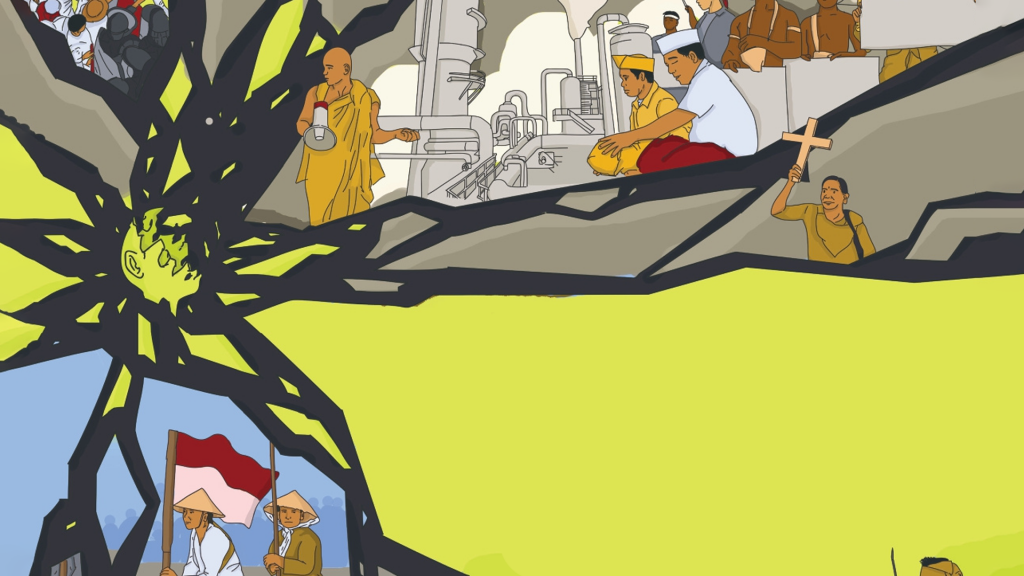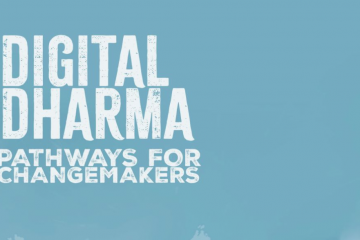Uncoference: Polarization and Its Discontent in the Global South

Polarization is a complex phenomenon that increasingly emerges across various dimensions of life—social, political, economic, cultural, and religious.
Although often mentioned in public discourse, the concept of “polarization” itself remains vague and widely debated. Polarization exists in various forms and degrees around the world—from mild to deeply rooted, and potentially leading to social conflict, division, or even civil war.
To broaden understanding of this phenomenon and to develop collective approaches to mitigate its impact, the Indonesian Consortium for Religious Studies (ICRS) will host an Unconference titled “Polarization and Its Discontent in the Global South: Mitigation Measures, Strategies and Policies” on April 24–25, 2025, at UC Hotel, Universitas Gadjah Mada (UGM), Yogyakarta.
This event is part of the “Global Initiatives on Polarization” project supported by the Ford Foundation, and will bring together dozens of partners from across the Global South—including Latin America, Africa, the Middle East, South Asia, and Southeast Asia. The project focuses on a deeper understanding of polarization and mitigation efforts rooted in local experience and interdisciplinary approaches.
It was from this forum that the idea emerged to hold an Unconference in Yogyakarta, continuing the global dialogue with a focus on local experiences and initiatives in the Global South. One of the main goals of the Unconference is to build collective understanding and develop concrete steps to reduce the negative impacts of polarization. From policy advocacy strategies, educational approaches, social technology, to strengthening civil society, the event will serve as a platform for experimentation and collaboration on sustainable solutions to polarization.
ICRS invites academics, activists, journalists, artists, policymakers, students, and all those interested or involved in polarization issues to join this Unconference. Participants are expected to come not only with ideas but also with a collaborative spirit to build a more just and inclusive shared future.
Unconference Concept: An Alternative Space for Idea Exchange
Unlike conventional academic conferences, the Unconference format promotes a participatory, collaborative, and flexible approach.
In this format, participants are not just passive listeners—they can help set the agenda, share direct experiences, and build networks across regions and disciplines.
Key characteristics of the Unconference include:
- Empowered Participants: Attendees can propose discussion topics on the spot.
- Idea & Experience Exchange: The focus is on horizontal sharing of insights, experiences, and methodologies.
- Relaxed and Open Atmosphere: Designed to foster honest, constructive dialogue free from formal barriers.
- Active Movement: Participants are encouraged to move between sessions based on their interests.
- Community Building: The event is designed to strengthen networks, foster cross-country solidarity, and extend the impact of discussions beyond the event itself.
Four Main Discussion Clusters
To provide an initial framework, the organizing committee has defined four key clusters as starting points for the two-day discussion:
- Religious-Based Political Polarization:
Examines how religion is used as a political tool to deepen social division and reinforce exclusive identities. This cluster will explore experiences from various countries in confronting religious politicization and building more inclusive narratives. - Polarization and Environmental Justice:
Focuses on the relationship between environmental crises, public policy, and social inequality. Polarization arises when access to natural resources and environmental policy decisions are unequal and neglect marginalized communities. - Gender, Polarization, and Social Justice:
Highlights the experiences of women and other vulnerable groups facing social exclusion and identity-based violence. It also explores how social movements respond to gender-based polarization. - Digital Inclusion for Minority Groups:
Discusses the challenges of information access and representation in the digital world for marginalized groups. While digital polarization can reinforce discrimination and misinformation, it can also offer new spaces to amplify community voices.
In addition to these four clusters, participants may propose new discussion clusters based on their local contexts and expertise. This ensures that the Unconference remains truly open, inclusive, and responsive to participant dynamics.
Muhammad Rhaka Katresna, our Regional Executives Board who attending the event, give his perspective on 2 days event:
Unpacking “Agama” and “Kepercayaan”: Seeds of Polarization
Our unconference room on Religion and Polarization delved into the fundamental categorization of belief systems in Indonesia. We began by examining the state’s distinction between “agama” – the officially recognized religions – and “kepercayaan” – often used to denote indigenous spiritualities and non-Abrahamic beliefs. This seemingly simple division has profound consequences, manifesting as a subtle yet powerful hegemony within Indonesian governance. This framework, we explored, inadvertently creates a divide, leading to the marginalization of religious minorities and those whose beliefs fall outside the state-sanctioned “agama” framework.
Blasphemy Laws and the Shadow of Colonialism
A significant portion of our discussion focused on the contentious issue of blasphemy laws in Indonesia. We critically analyzed how these laws are often used to silence dissenting voices and further entrench the dominance of majority religious interpretations. Importantly, we connected the existence and application of these laws to the legacy of the colonial-era penal code, raising crucial questions about the need for decolonization in our legal frameworks. How can Indonesia truly move forward while still carrying the weight of laws designed under a different context and for different purposes?
Youth as Active Knowledge Users: A Generation Navigating Polarization
I also brought to the forefront the vital role of youth in the face of political and religious polarization. We questioned: Where is the voice of the youth amidst these societal divides? Young people are not passive recipients of information; they are active users and creators of knowledge. How are they actively constructing meaning when confronted with rigid and often exclusionary definitions of religion imposed by older generations? We explored the feeling of being compelled to comply with these pre-established definitions, of being drawn into the hegemony of the majority, and the potential for this to stifle independent thought and belief.
Challenging Hegemony: Empowering Youth Voices
Our unconference room served as a space to critically examine these power dynamics and to amplify the perspectives of young people. We aimed to foster a dialogue that challenges the existing hegemony and empowers youth to articulate their own understandings of faith, spirituality, and identity, free from the constraints of narrowly defined categories. The energy and insights shared underscored the urgent need to create space for diverse voices and to deconstruct the inherited frameworks that contribute to religious polarization in Indonesia.
#AYF #ReligionAndPolarization #YouthForChange #Indonesia #ReligiousFreedom #DecolonizeLaw #YouthVoices



0 Comments